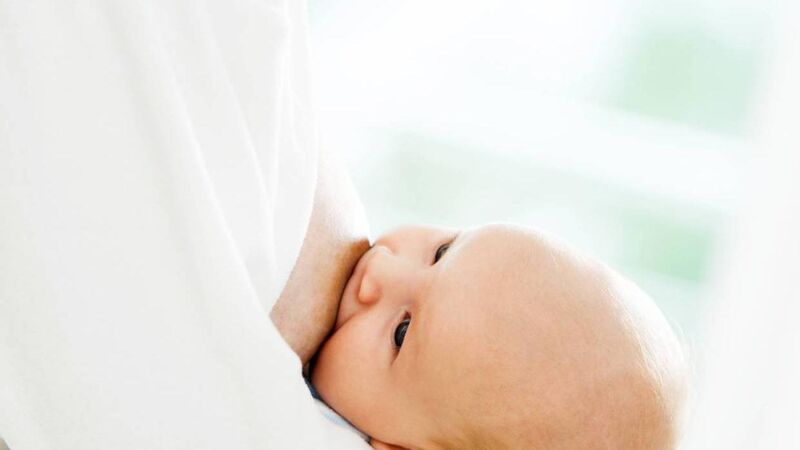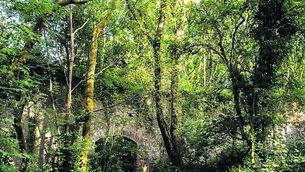Breast really is best... so let’s send that message to parents

63% of mothers in Ireland start breastfeeding after they give birth, but many stop within the first week. Picture: iStock
We visited a good friend over the summer who was the proud new owner of a three-month-old, and my daughter and this baby spent many adorable hours admiring each other.
If my daughter spots a baby being breastfed, she gets particularly squishy because she allegedly has fond memories of being breastfed and gets nostalgic over her past youth. Nostalgia is quite a feat when you are just six.
This is National Breastfeeding Week, an opportunity to celebrate the beautiful human function that is breastfeeding.
Ireland still vies for the unlofty ‘lowest breastfeeding rates in the world’ position, but there are some positives to acknowledge this week.
The number of babies being breastfed is growing a percentage point each year; the number of lactation consultants in maternity hospitals or public health nursing to support those who want to breastfeed has doubled in the last three years; and hats off to the government, who introduced legislation that extended breastfeeding breaks from six months to two years in all workplaces this year.
This reflects the fact that the World Health Organisation (WHO) recommends breastfeeding to two years or beyond, and demonstrates to employers and employees that breastfeeding is important and valued in Ireland.
Depending on the work environment and employers’ policies, this break can be taken as one 60-minute break, two 30-minute breaks or three 20-minute breaks.
Or you can opt to have your working hours reduced (without loss of pay) to facilitate breastfeeding where suitable facilities are not available.
It is a wonderful way to help breastfeeding mothers returning to work after maternity leave.
According to the International Labour Organisation: “Breastfeeding is not an obstacle to productivity. Research shows that women are more likely to stay in their job in the longer term, if they can breastfeed at work - which is a good way of retaining skilled workers”.
When governments support breastfeeding, they are making a prudent investment in the health of future populations.
I don’t like expounding on the health ‘benefits’ of breastfeeding. Breastfeeding is the baseline. It is the biologically normal way to feed babies.
Sadly, because breastfeeding culture has been eroded and undermined for decades by commercial milk formula companies intent on supplanting breastmilk with their profitable products, the baseline of what is normal has shifted.
Not breastfeeding increases the risk of a range of health conditions. For fear of upsetting families who can’t or choose not to breastfeed, it is hard to say that formula-fed babies have higher risks of SIDS, infections or obesity, or that women who don’t breastfeed have higher risks of some cancers, but it’s true.
Apart from maternal and infant health, breastfeeding also supports planetary health. It is the ultimate food and medicine rolled into one. It is produced as needed - no waste. It is a bespoke product tailored for each individual consumer, and is packaging free.
No cows producing methane, no massive energy requirement to dry milk to a powder, no transport carbon footprint or electricity needed to safely prepare it....
Breastfeeding is also the safest food for babies in an emergency. Not just humanitarian disaster emergencies, but more mundane disruptions to water supplies or electricity which can be stressful for families not breastfeeding.
Skilled, timely breastfeeding support is associated with successful breastfeeding and is crucial for mothers and families who want to breastfeed; 63% of mothers in Ireland start breastfeeding after they give birth. They should be supported to continue for as long as they want.
Yet research from the breastfeeding advocacy group Bainne Beatha shows that the biggest drop off in exclusive breastfeeding happened in the first week of the child’s life, a time when mothers and babies are still in the care of the health services.
The report, produced in conjunction with TU Dublin, found that mothers were regularly offered formula as a solution to breastfeeding problems when what they actually wanted was help with breastfeeding.
The HSE’s website mychild.ie has breastfeeding support and practical advice from lactation consultants, including a live chat option available seven days a week.
Voluntary breastfeeding support organisations Cuidiú, La Leche League and Friends of Breastfeeding are only too happy to support a mum who might hit a bump in their breastfeeding journey or just want to talk to others in the same boat.
Formula industry-funded support lines should be avoided. ‘Baby clubs’ and ‘care lines’ are marketing tactics to attract potential customers to the companies’ brands if breastfeeding stops. They are not a source of impartial, caring advice.
Out of interest, I signed up to one over a year ago with a fictional due date and I was appalled to see emails from the formula company’s ‘support’ line arrive in my inbox on a weekly basis after my non-existent baby was born.
The emails could seed doubt in tired and anxious parents. “Is baby getting enough milk?” “Dealing with Colic: Newborn feeding problems”.
I received emails about food intolerances and cow’s milk allergy, which affects a tiny percentage of the population and about which the British Medical Journal said: “Allergy to cow’s milk protein may be acting as a Trojan horse for the $50bn global formula industry to forge relationships with healthcare professionals”.
Along with an underfunded maternity system it is no surprise that women find it difficult to breastfeed in Ireland.
So, this National Breastfeeding Week, if you get an opportunity to support breastfeeding, take it!







 App?
App?




